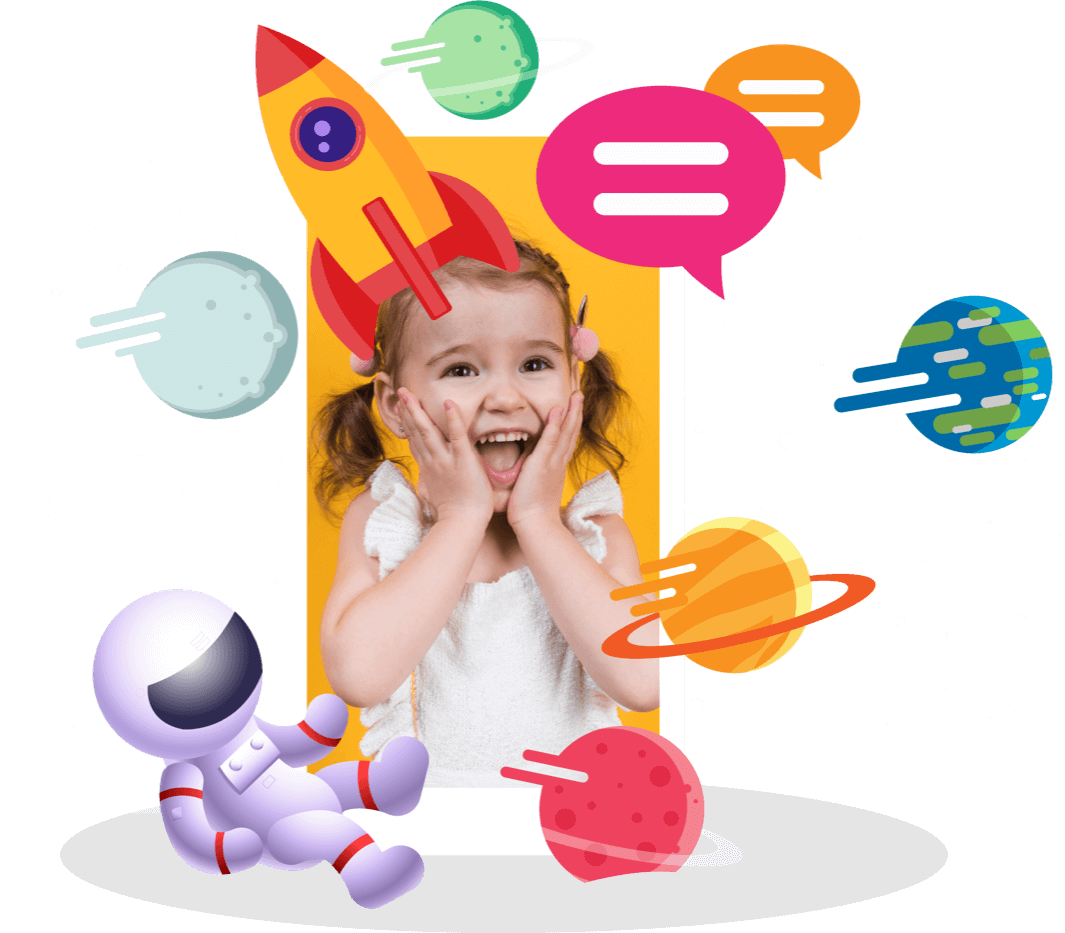Speaking skill develops after certain phases are completed. There are two elements in learning process as recipient language and expressive language. Recipient language is comprehension of the sounds and reactions coming from outside. Expressive language, on the other hand, is combination of reactions the child makes to express himself.
Speaking skill develops at around 4-6 months of age in children. In this period, the child shows something called “babbling”. The child reacts to stimuli by making one-syllable, constant sounds. This reaction is a way of communication for the child. This one-syllable sound period is completed at the age of 4-6, when they clearly speaking development starts to develop. However, disabled children might need rehabilitation for this development. Rehabilitation is an important stage for developing recipient language skills.
Importance of Recipient Language Practice
Children learn how to speak by mimicking the sounds they are exposed to. They learn to manage their own sounds by observing sounds and lip movements. To give an example, the word “daddy” has similar pronunciation in many languages. Infants making one-syllable sounds was the reason this word created.
Come along with 200k+ families!
Let's communicate better!
Download for Free.
The better the recipient language skills are developed, the better the learning speaking process. Speech disorder therapies should firstly focus on achieving and developing recipient language practice. The main goal here is to have children gain language practice and skills. Initially, one or two syllable words that would not push the child too hard could be used and their meanings can be shown.
Skill Acquisition Process
Children, who had normal developmental stages, do not require extra activity to develop their recipient language skills. Children acquire speech ability by mimicking and observing sounds. Speech development of children have different purposes. They recognize the differences in the tone of voice in 4-6 months of age. Between 7 months and 1 year period, they start to distinguish certain sounds in speech and can learn simple commands like “come, go”. At the age of 1-2, children can understand 50-100 words and recognize body parts. After 2 years of age, they start to speak in a half-understandable language. __If the child is not showing this process and the development he should have, certain extra activities may have to be done to develop recipient skills.__
There may be other causes to children not developing recipient language and speech other than mental disability.__ If the necessary social surrounding is not provided, or the child has a problem with his vocal chords, throat etc., he may not be able to produce words.__ In the case the child is not showing speech development, it is important to consult to an expert. An early rehabilitation can very much help children gain their speech abilities in short amount of time. The earlier the rehabilitation starts, the more effective is the process of acquiring speech ability and recipient language skills.
Activities to Develop Recipient Language
- Naming objects has an important role in developing recipient language. Objects that would attract children and are easy to pronounce can be named and the child can be asked to repeat. Choosing words with one or two syllables would be wise. More complicated words can be used after the child makes progress.
- A booklet that contains same kinds of objects can be prepared. Pictures can be cut out from magazines or newspapers. For example, after gluing clothing pictures on the page, the name of the clothing can be written under it and the child, this way, can learn clothes. After that, he is asked to pronounce their names by showing them. This way, acquisition of the skill is completed.
- Daily objects the child uses can be put in certain places while pronouncing their names. Then, the child is asked to say their names while picking them up.
Sources:
- turkishstudies.net
http://www.turkishstudies.net/Makaleler/1602712846_50Erbay_Filiz.pdf
- ozelegitimsitesi.gen.tr
http://ozelegitimsitesi.gen.tr/alici-dil-destekleyici-etkinlikler.html
Last updated: 12 March 2021





